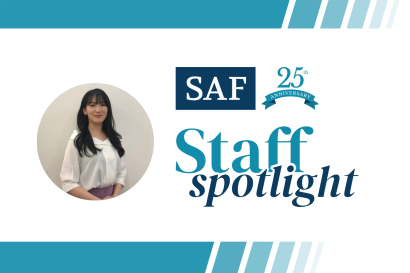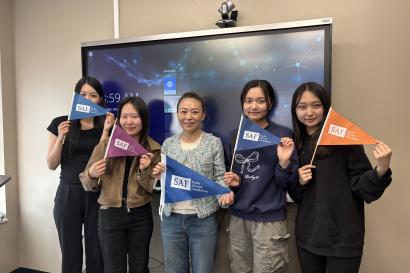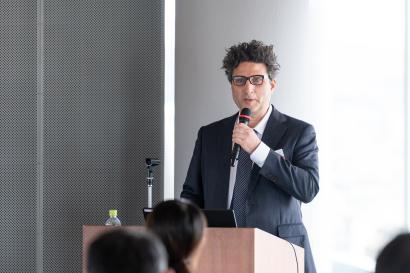With the news of vaccination rollouts, the question on everyone’s minds is when will traveling abroad finally be safe enough to facilitate international study? We examine some of the headline trends affecting enrollment numbers right now, and what SAF’s outlook on the industry will be for the next academic year.
Rapidly changing vaccine mandates vary by country and university
As of July, both California State University and University of California – which together account for more than 750,000 students in the US – now require both their staff and students, including visiting international students, to be fully vaccinated. Other prominent American universities have taken similar stances, including Harvard, Columbia, and University of Pennsylvania. This signals the start of a trend that many more college campuses are likely to follow, particularly as the US government announces vaccine mandates for civil servants and health workers, and more vaccines are approved by the FDA.
How will this affect students? Unvaccinated students, or those vaccinated with non-WHO approved vaccines, are likely to be required to attend an on-campus clinic, and receive their vaccinations before they can attend classes. Additionally, students will have to self-isolate before and – in the case of two-dose vaccines like Pfizer – between their shots, which is expected to cause a demand for independent accommodation, particularly in areas with existing housing shortages in locations such as California.
Broadening the scope, news reports from earlier this month speculate that the US may require all international travelers to be vaccinated to enter. We are also seeing some European countries now list “expiration dates” for how long they will recognize a COVID vaccine as being effective, ranging from 9-12 months, leaving questions as to how other countries will manage boosters.
SAF continues to track this evolving information by country and by university on a weekly basis so that our prospective students have the most accurate and updated information available.
Chinese vaccines accepted by campuses, but still pose uncertainty for students
After some uncertainty as to whether Chinese-made vaccines would be recognized by American colleges, it appears that most universities are accepting WHO-approved vaccines, including Sinopharm and Sinovac. This is great news for Chinese students, who are often unable to access alternative western-made vaccines at home.
Other western host countries, however, including Canada and much of Europe, still do not recognize Sinopharm and Sinovac on their list of accepted vaccines to enter the country, which could see Chinese students denied entry or subject to lengthy quarantine periods.
Chinese passports and visas on hold
After huge backlogs amidst understaffed visa offices in Asia, the newly elected Biden administration has made strides this year in streamlining its consular services, and appears to be prioritizing international education and student visa applications.
The bigger news, however, lies in China, where the ruling CCP has largely stopped issuing passports and exit visas to its citizens in “non-urgent” cases. Ostensibly part of the government’s efforts to curb COVID-19 cases, it has also been interpreted as part of a long-term strategy to reduce movement in a bid to bolster its workforce domestically and retain local talent.
This poses a procedural challenge for Chinese students hoping to study abroad. While not impossible, the process has anecdotally become more difficult and complex to navigate, often requiring students to first receive an official offer letter from the host university prior to applying for their passport. SAF anticipates challenges ahead for university admissions processes and internationalization goals if the rules around passport renewals and issuances continue to be tightened.
Quarantines and lockdowns causing students to wait
SAF created a COVID-19 monitoring team that met daily at the beginning of the pandemic and still meets twice a week to chronicle and inform constituents of the ever-changing border entry and quarantine policies across our nine host countries. It has been a complex web of requirements based on country of origin, vaccination status, and vaccine manufacturer. We are grateful to all our host university partners for assisting SAF in understanding national, local and university policies and making a difficult arrival process run as smoothly as possible.
We will continue to monitor arrival pandemic policies and procedures for Spring 2022 as well.
We also have to consider the implication of return quarantine policies for our students from China, Japan and South Korea, who all face quarantines when they return to their home countries, creating uncertainty for what awaits students after they complete their study abroad experience. As domestic quarantine policies change frequently, we must recognize that some students are not comfortable or willing to navigate the current unpredictability.
Add to that, many host universities may also change their requirements or policies; international students might be informed at short notice that their classes will be held online, or canceled entirely. This precariousness has caused no small amount of hesitation on students’ part to go abroad, with many preferring to wait until the pandemic situation stabilizes.
Japan and Korea interest in study abroad remains high
Despite the existing barriers to international travel, interest in study abroad remains strong in key markets like Japan and Korea. In Japan, certain universities and majors include study abroad as a graduation requirement, and this has not changed in light of COVID-19. For this reason, we anticipate Japanese students will continue to express a keen interest in study abroad, in particular seeking out regional and smaller schools that can provide them with unique cultural immersion experiences.
Korean students are also expected to return to study abroad programs, attracted by prestigious schools which promise to strengthen their academic experiences. Read more about the Korean market in our interview with new Korean head, Suyeon Lee.
Outlook for 2022
In line with the current uncertainty and inconsistency across the industry, SAF is offering both in-person and virtual program options for students through the fall and winter.
We are cautiously optimistic that as the situation stabilizes and vaccination numbers rise, a return to global mobility by the spring of 2022 will translate to a return of enrollment in study abroad programs.
Japan remains a key sector; the strong uptake in virtual programming there points to a strong demand for study abroad opportunities in 2022, and we remain bullish on this front. SAF is also investing heavily into the Korean market, renewing our Korea office efforts to explore fresh opportunities on the ground and establish new channels for western partners.
The situation in China is less clear at this point. Based on evolving COVID conditions and shifting government and university policies in China, there is a recognition that the China market will take longer to normalize and return to mobility compared to outbound mobility from the US, Japan, and Korea.




